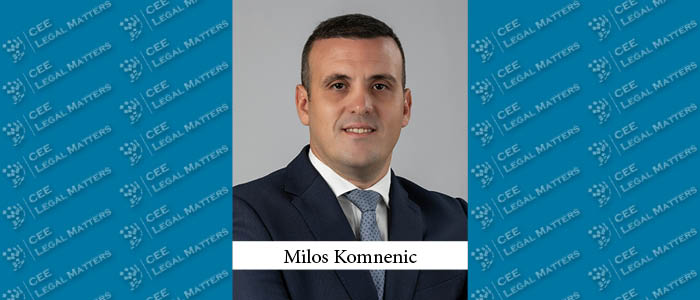In the last decade, Montenegro has focused on creating a favorable business environment, attracting renowned foreign investors and resulting in significant economic development and growth. The government has been focusing on high-level tourism, transitioning from seasonal to year-round hotels that offer luxurious stays and services.
Navigating the country’s legal framework is crucial for any investor. Here are some of the major aspects to consider when investing in Montenegro:
Prerequisites and Assessment
Whether it comes to the purchase of the real estate, construction, or the purchase of shares, investors should conduct thorough due diligence and analyze each investment opportunity, given that in many cases the available information is not up to date.
Current title deeds do not always mean that the real estate is free from all encumbrances and limitations, nor do they always reflect the factual state. Reviews of urbanistic parameters, zoning, environmental regulations, and health and safety standards are essential as well.
Even though Montenegro is moving toward digitalization in approaching its EU agenda, legal procedures remain very bureaucratic and formalistic, which may lead to delays and should be taken into consideration in business plans.
Business Form and Categorization
It is notable that investors almost always choose to establish limited liability companies due to the convenience of procedure, limitation of responsibility, and minimal founding capital required.
Frequently, investors establish cooperations with local partners either through the formation of SPVs or through joint construction mechanisms, with an adequate division of responsibility and income.
The common hotel models include condo or mixed-use models, which allow for the selling of certain portions of hotel units and the forming of a rental pool. However, this does not mean that other models are disregarded.
Purchase of Hotel Units
Investment may also be made by purchasing hotel units in condo and mixed-use hotels, as provided by the Montenegrin Law on Tourism and Hospitality.
The management and maintenance of a hotel according to a condo and mixed business model are carried out based on a sale and purchase agreement, management and maintenance agreement, and rental agreement. Ownership rights can be obtained only for accommodation units with associated parking spaces (excluding rights over common rooms and complementary facilities of the hotel).
Investing through these models offers the possibility to own real estate in Montenegro for personal use as well as to make profits from renting through world-renowned hotel operators. It is also worth noting that renting units in a mixed-use model is optional, unlike in a condo model, where it is mandatory.
Tax Considerations and Incentives
Understanding Montenegro’s tax landscape is vital for financial planning. In its devotion to attracting foreign investments, certain tax reliefs and incentives are granted according to currently applicable legislation. Notably, a VAT rate of 0% is applied to the delivery of products and services for the construction and equipping of a hospitality facility of five or more stars where the investment value exceeds EUR 500,000. Furthermore, accommodation services in hotels, motels, tourist settlements, guesthouses, camps, tourist apartments, and villas are subject to a VAT rate of 7%, as well as the service of preparing and serving food, drinks, and beverages, except for alcoholic drinks, carbonated drinks with added sugar, and coffee in hospitality facilities. Additionally, investors are not required to pay a fee for communal equipment of construction land for hotels with at least four stars, except in the case of condo or mixed business models where the investor is obliged to pay the fee for accommodation units that are subject to individual sale, and for the net area of the accommodation units with the associated parking space. Also, the real estate tax rate may be reduced for a hospitality facility, specifically for three-star facilities up to 15%, four-star ones up to 30%, and up to 70% for categories over four stars.
It is important to note that the period of political changes has left a mark on real estate projects – as can be expected of all transitioning systems. To mitigate all risks, potential investors must prioritize legal analysis of the entire investment.
Nevertheless, in approaching and securing compliance with EU law, Montenegro’s evolving legislation should be closely monitored as there will most certainly be new developments and incentives in the real estate and investment markets.
By Milos Komnenic, Managing Partner, Komnenic & Partners
This article was originally published in Issue 11.2 of the CEE Legal Matters Magazine. If you would like to receive a hard copy of the magazine, you can subscribe here.
















